Affordable Cancer Technologies Program Principal Investigators Meeting (Speaker Bios)
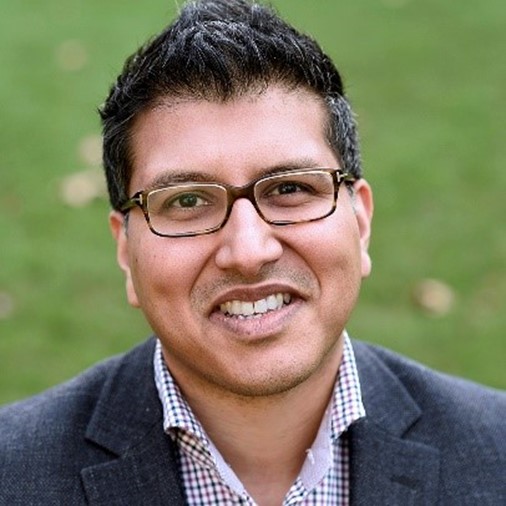 Ajay Aggarwal, MRCP, FRCR, Ph.D.
Ajay Aggarwal, MRCP, FRCR, Ph.D.
Consultant Clinical Oncologist, Guy’s & St Thomas’ NHS TrustDr Ajay Aggarwal is a Consultant Clinical Oncologist at Guy’s & St Thomas’ NHS Trust, London and Associate Professor at the London School of Hygiene and Tropical Medicine (LSHTM). His main research areas are health system design, performance assessment of cancer care and Global Health. He was awarded an Advanced Fellowship by the National Institute for Health Research (NIHR) in 2020 and is the current editor of the Journal of Cancer Policy. As the lead for the UK National Prostate Cancer Audit, he co-led the development and delivery of the first ever national hospital outcome reporting programme for radiotherapy. His research has contributed significantly to national and international policy discussion around the affordability of cancer care and the value of new technologies in cancer medicine which has directly influenced the WHO Cancer Drug Pricing and Benefits Taskforces. As co-chair of the Health Economics in Radiation Oncology (HERO) group within ESTRO (European Society for Radiation Oncology), he is co-leading the value-based health care initiative. He is the Chief Investigator of the NIH funded ARCHERY study, the first prospective international multicentre trial across India, Jordan, Malaysia and South Africa evaluating the role of AI in radiotherapy.
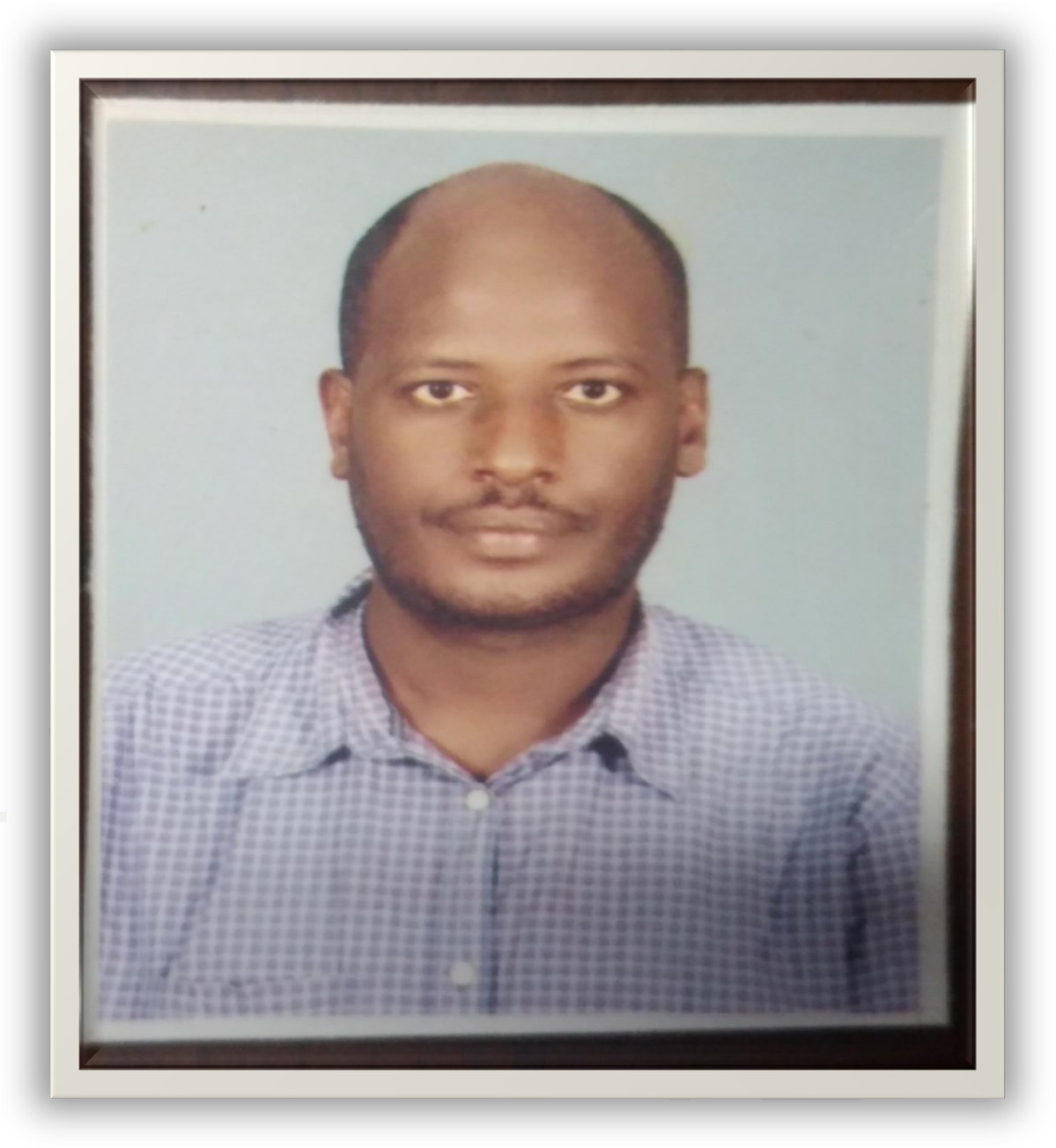 Ayenew Ashenef, B.Pharm, MSc
Ayenew Ashenef, B.Pharm, MSc
Assistant Professor, Addis Ababa UniversityProf. Ashenef is trained as a pharmacist (B. Pharm) and has MSc degrees in pharmaceutical analysis and quality assurance and also in medicinal chemistry. He is a Fellow at CTD-Africa in Translational medicine and coordinates the MSc programme in Pharmaceutical analysis and quality assurance at Addis Ababa University, where students are trained for regulatory, industry and academia positions. His area of research interest is to develop analytical methods for quality evaluation purposes, as well as devising ways to maximize therapeutic outcome for the currently available drugs.
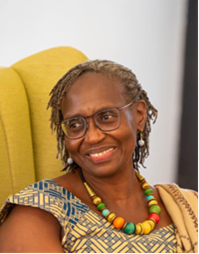 Elizabeth A. Bukusi, M.D., MPH, Ph.D., PGD
Elizabeth A. Bukusi, M.D., MPH, Ph.D., PGD
Research Professor, University of WashingtonProfessor Elizabeth Anne Bukusi (ObGyn), MPH, Ph.D., PGD (Research Ethics), Masters in Bioethics, Fellow of the African Academy of Sciences, earned her general medical degree and Masters in Obstetrics and Gynecology degree from the University of Nairobi. She then earned a certificate in international health, MPH, and a Ph.D. from the University of Washington’s Department of Epidemiology; a postgraduate diploma in Research Ethics from the University of Cape Town and a Masters in Bioethics from the Centre for Bioethics and Culture at the Sind Institute of Urology and Transplantation in Karachi. She is a certified IRB Professional. She is a Senior Principal Clinical Research Scientist at the Kenya Medical Research Institute (KEMRI), a Research Professor at the University of Washington (Departments of Obstetrics and Gynecology and Global Health), an honorary lecturer at Aga Khan University in Nairobi and Maseno University (Department of Obstetrics and Gynecology) and Volunteer Clinical faculty – Professor at the University of California San Francisco (Department of Obstetrics, Gynecology & Reproductive Sciences). Prof. Bukusi, in collaboration with Dr. Craig Cohen at UCSF, established the KEMRI Research Care and Training Program in 1995. In addition to her substantial experience in conducting socio-behavioral and biomedical research and providing HIV care, mentoring and training health care and research personnel to enhance local and international capacity, she has a strong interest in research and clinical ethics and the development of systems and structures for regulation of research at KEMRI and in the country. She is the chairperson of the National Bioethics Society of Kenya, (BSK), a multidisciplinary, non-political, non-discriminatory, and not-for-profit organization with a primary objective to promote high ethical standards in bio-medical research, medicine, and health care in Kenya. She is a board member of AVAC, Chaired the WHO HRP Alliance (capacity building for RH research) 2016 to 2021, and is a trustee for the HIV Trust, and an Elected Fellow of the African Academy of Sciences (FAAS).
 Cesar M. Castro, M.D.
Cesar M. Castro, M.D.
Director, Massachusetts General Hospital Cancer CenterCesar M. Castro, MD, MMSc is an Associate Professor of Medicine at Harvard Medical School and Director of the Gynecologic Oncology Program at the MGH Cancer Center and Co-Leader of the Gynecologic Cancers Program at the Dana Farber / Harvard Cancer Center. Dr. Castro is a translational oncologist with experience leveraging nanotechnology and molecular imaging for solid tumor detection and serial profiling. Previous global oncology work involved decentralized cancer diagnostics and profiling in Botswana. He directs the Cancer Program within the MGH Center for Systems Biology, where he helps shepherd a portfolio of forward-thinking nano sensors and miniaturized technologies for translational and clinical applications. Dr. Castro graduated from the University of California, Berkeley, and received his medical degree from the UCSF School of Medicine where he also completed his Internal Medicine residency training. Dr. Castro completed an adult oncology fellowship from the Dana-Farber / Mass General Brigham Cancer Care program. During this period, he received an MMSc from Harvard Medical School in clinical investigation.
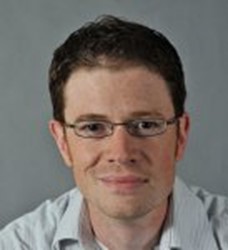 Jonathan Celli, Ph.D
Jonathan Celli, Ph.D
Associate Professor, University of MassachusettsJonathan Celli, PhD is an Associate Professor of Physics at the University of Massachusetts in Boston where he leads a research group focused on cancer biophysics and photomedicine. Previously he was junior faculty at the Wellman Center for Photomedicine, Massachusetts General Hospital where he continues to hold a joint appointment as a Research Scientist. He received a K99/R00 Pathway to Independence award from NCI in 2011 and was one of the PIs of a UH2/UH3 award from the NCI in 2014 which led to development and clinical evaluation of low-cost technology for photodynamic therapy treatment of oral cancer in India. In addition to working on PDT for global health applications the Celli laboratory also has ongoing projects focused on elucidating biophysical determinants of response to PDT and other therapeutics in preclinical models.
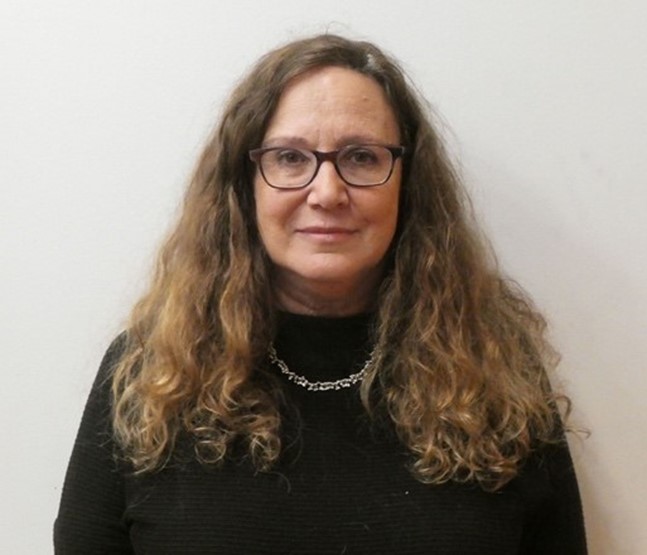 Ethel Cesarman, M.D, Ph.D
Ethel Cesarman, M.D, Ph.D
Professor, Weill Cornell Medical CollegeDr. Cesarman is a Professor of Pathology and Laboratory Medicine at Weill Cornell Medical College and Attending Pathologist at The New York Presbyterian Hospital. She was born and raised in Mexico, where she completed her medical training. She obtained a PhD from New York University, followed by Anatomic Pathology Residency training at the College of Physicians and Surgeons of Columbia University. She has been faculty at Weill Cornell Medical College since 1994. Dr. Cesarman was part of the team that discovered the Kaposi’s sarcoma herpesvirus (KSHV/HHV-8) and found that this virus is consistently present in a subset of non-Hodgkin’s lymphomas, designated primary effusion lymphomas (PEL), which led to the recognition of these lymphomas as a distinct disease entity. This discovery allowed the development of cell lines that were the first substrate used for serologic assays, development of novel cell culture and mouse models of viral oncogenesis, and the identification and characterization of viral genes involved in the pathogenesis of KS and PEL. Current research efforts in the Cesarman lab are aimed at better understanding mechanisms of herpesviral oncogenesis with the goal of therapeutically targeting viral oncogenic signals. This includes epigenetic manipulation of viral gene expression for immunotherapeutic targeting. She has also been involved in cancer genomic studies, including Kaposi sarcoma and the Hodgkin and Reed-Sternberg cells from primary Hodgkin lymphoma tumor specimens and sequencing of AIDS-related lymphomas to gain a deeper understanding of the viral contribution to the tumor genetic landscape, as well as new cellular genetic alterations and their contribution towards lymphoma development. Dr. Cesarman is the leader of the pathology laboratory of the AIDS Malignancy Consortium, and has been involved in working with pathologists in Africa and Latin America to support diagnosis of Kaposi’s sarcoma and lymphoma. Dr. Cesarman has been developing new diagnostic tools such as a point of care assay for Kaposi sarcoma in collaboration with Drs. Erickson, Martin, Semeere, and Maurer.
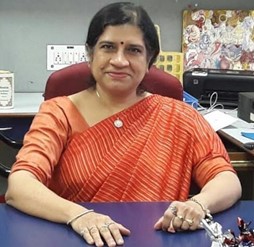 Sangeeta Desai, MBBS, M.D
Sangeeta Desai, MBBS, M.D
Professor, Tata Memorial CentreDr. Sangeeta Desai, Professor and Head, Pathology, Tata Memorial Centre, Department of Pathology, Mumbai, India. Her subspecialities in Surgical Pathology are Breast Cancer and Urologic Cancer. Her areas of interest in Oncology besides oncopathology include Diagnostic Molecular Pathology, Digital Pathology/AI, Telemedicine, Biorepository science, Research Bioethics. She has authored 265 publications, of which 176 are peer reviewed and contributed to 10 books. She has pioneered Clinical Molecular Diagnostics and Digital Pathology in India. She is a principal Investigator at Tata Memorial Centre, India, on a study entitled U01 grant "An AI-Enabled Digital Pathology Platform for Multi-Cancer Diagnosis, Prognosis, and Prediction of Therapeutic Benefit" (ADAPT Study).
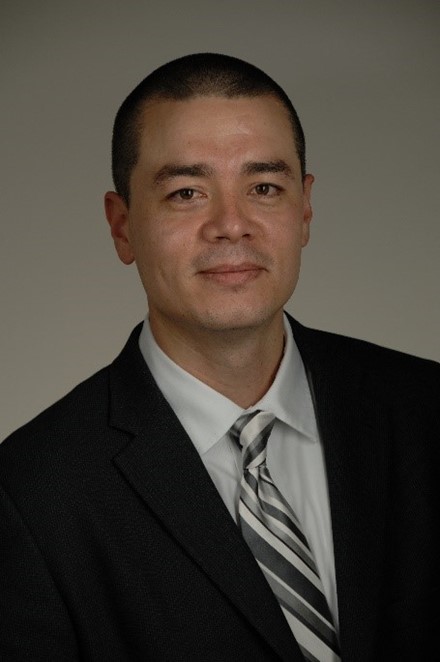 Tony Dickherber, Ph.D
Tony Dickherber, Ph.D
Program Director, NCITony Dickherber is co-Director of the NCI Innovative Molecular Analysis Technologies (IMAT) and NCI-CRUK Cancer Grand Challenges (CGC) programs, and co-Chair of the Enabling Technologies Cancer Moonshot Implementation Team. He holds a master's degree in electrical engineering and Ph.D. in bioengineering, both from the Georgia Institute of Technology, where his dissertation research focused on the development of label-free cancer protein microarray biosensors based on microelectronic acoustic device technology. Tony also assists with general strategic planning for initiatives involving emerging biotechnologies and in development of strategic partnerships.
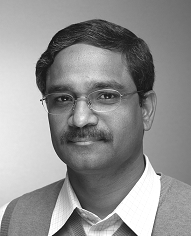 Rao Divi, Ph.D
Rao Divi, Ph.D
Program Director, National Cancer InstituteDr. Divi is a Program Director in the Methods and Technologies Branch (MTB) in Epidemiology and Genomics Research Program, Division of Cancer Control and Population Sciences at NCI. His responsibilities include managing a research portfolio and initiatives that focus on the development of methods and technologies to address epidemiologic data collection, study design and analysis, and validation of emerging technologies for application across the cancer control continuum. He is the NCI representative to three case/control consortia conducting large scale population studies. Dr. Divi is a member of the NIH Rapid Acceleration of Diagnostics (RADx) Initiative management team. RADx was launched to accelerate innovation in the development, commercialization, and implementation of technologies for COVID-19 SARS-CoV-2 testing. He also serves on the management team of NCI/NIH Point-of-Care Technologies Research Network (POCTRN). In addition, Dr. Divi is the co-Program Director and/or contact person for funding opportunity announcements (FOAs) on Cancer Prevention, Detection, Diagnosis, and Treatment Technologies for Global Health; Assay Validation of High-Quality Markers for Clinical Studies in Cancer; Co-infection and Cancer; and NIH Bioengineering Research Partnerships Program. Dr. Divi’s goal is to keep pulse on breakthrough technologies, particularly affordable technologies, that have the potential to make difference in health and disease and technologically address health disparities.
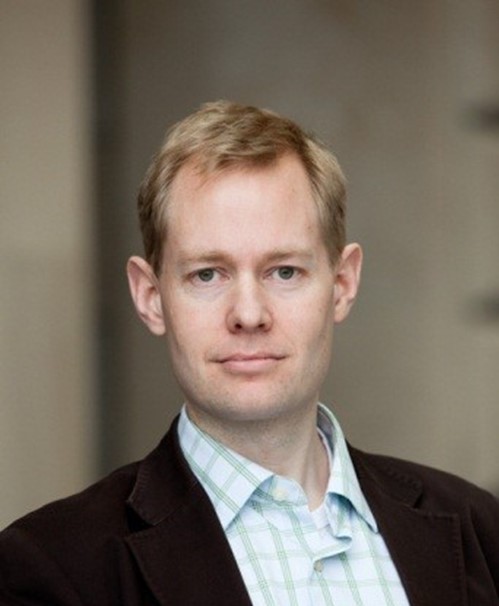 David Erickson, Ph.D
David Erickson, Ph.D
Director, Cornell UniversityDavid Erickson is the SC Thomas Sze Director and Sibley College Professor in the Sibley School of Mechanical and Aerospace Engineering at Cornell University. He is also a joint Professor within the Division of Nutritional Sciences. His research focuses on: mobile and global health technology, medical diagnostics, microfluidics, photonics, and nanotechnology. Prior to joining the faculty, he was a postdoctoral scholar at the California Institute of Technology and he received his Ph.D. degree from the University of Toronto. Research in the Erickson lab is or has been primarily funded through grants from the NIH, NSF, ARPA-E, ONR, DOE, DARPA, USAID, USDA, Nutrition International, and Global Alliance for Improved Nutrition (GAIN). Prof. Erickson has helped to found numerous start-up companies commercializing: high-throughput pharmaceutical instrumentation, biomedical diagnostics, and energy technologies including Halo Labs (http://halolabs.com), VitaScan (http://vitascan.me) and Dimensional Energy (https://www.dimensionalenergy.net/). Dr. Erickson has received the DARPA-MTO Young Faculty Award, the NSF CAREER Award, the Department of Energy Early Career Award, among others. In 2011 he was awarded the Presidential Early Career Award for Scientist and Engineers (PECASE) by President Obama. Erickson has been named a fellow of the Optical Society of America, the American Society of Mechanical Engineers, and the Canadian Academy of Engineering.
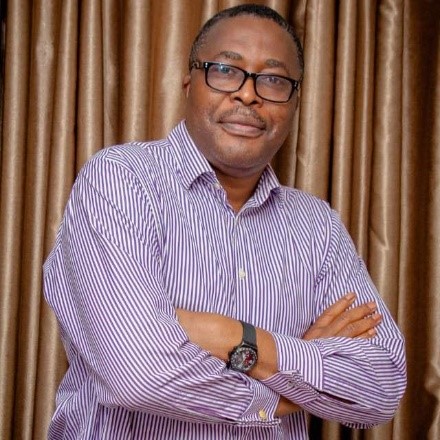 Oliver Ezechi, M.D., Ph.D
Oliver Ezechi, M.D., Ph.D
Professor, Nigerian Institute of Medical ResearchProf. Oliver Ezechi, MD, Ph.D.; Professor (MPI): Director of Research, a public health expert and physician at the Nigerian Institute of Medical Research-the apex medical research institute in Nigeria. For the past 30 years as a Physician-scientist, Ezechi has provided comprehensive care, treatment, and support services to persons living with HIV and women. His research focuses on women’s health challenges in resource-limited settings, specifically on infectious diseases of poverty, including HIV infection, HPV, and cervical cancer. In the last few years, in addition to developing evidence to reduce the burden and mortality of HIV and cervical cancer in Nigeria, he has continued to build capacity for junior researchers involved in the study in these subject areas. He also has experience leading clinical trials and the evaluation of programs and interventions that serve minorities and key populations in resource-limited settings. He is the Chair of the Practice Guideline Committee of the Society of Obstetrics and Gynecology of Nigeria (SOGON). He is also a Co-PI (along with Drs. Iwelunmor, Chang, and Tucker) on the proposed Innovative Rapid Enabling, Affordable, point-of-care HPV self-testing strategy (I-REACH) study. He will be responsible for the local coordination and implementation of I-REACH activities in Nigeria.
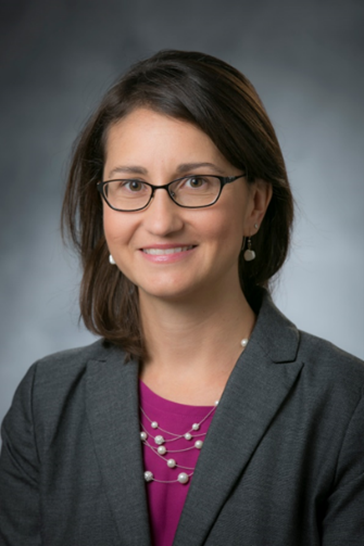 Tamara Fitzgerald, M.D., Ph.D
Tamara Fitzgerald, M.D., Ph.D
Associate Professor, Duke UniversityTamara Fitzgerald is an Associate Professor in the Division of Pediatric Surgery at Duke University and the Duke Global Health institute. Her academic focus is global surgery capacity building and medical device design for low- and middle-income countries. She works in partnership with pediatric surgeons in sub-Saharan Africa to increase training and support for surgeons, thereby improving children’s access to surgical care. She is the principle investigator for the KeyScope project. She received her B.S. and Ph.D. in biomedical engineering and her M.D. from Boston University. She completed a general surgery residency and fellowship in pediatric surgery at Yale-New Haven Hospital. She was the recipient of the Society of University Surgeons Global Scholar Award. Her website is scholars.duke.edu/person/tamara.fitzgerald.
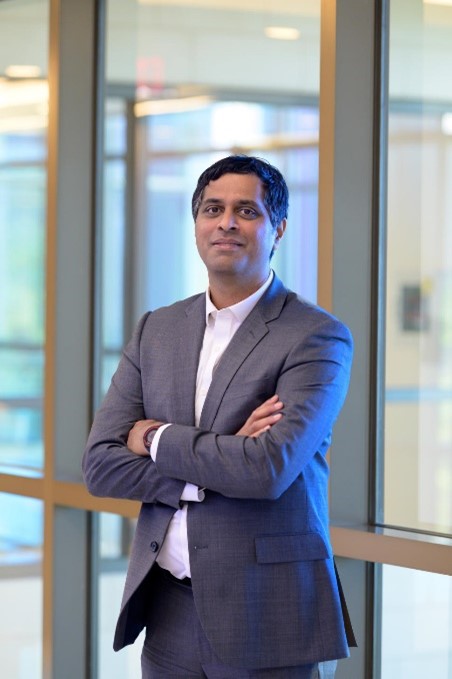 Satish Gopal, M.D., M.P.H.
Satish Gopal, M.D., M.P.H.
Director, National Cancer InstituteSatish Gopal, M.D., M.P.H. was appointed Director of the Center for Global Health (CGH) at the National Cancer Institute (NCI) in February 2020. In this role, he oversees the development of initiatives and collaborations with other NCI and NIH partners, NCI-designated cancer centers, and other governmental and non-governmental organizations to support cancer research, promote cancer control, and build capacity in low- and middle-income countries. Before coming to NCI, Dr. Gopal was the Cancer Program Director for the University of North Carolina collaboration with the Malawi Ministry of Health.
As an extramural physician-scientist, his NIH-funded research program focused on epidemiologic, clinical, and translational studies of lymphoma and HIV-associated malignancies in Africa and he oversaw a broad, multidisciplinary cancer research portfolio addressing many of the commonest cancers in the region, including cervical, breast, and esophageal cancer. He has authored more than 100 publications and mentored more than 30 early-career U.S. and African pre- and post-doctoral cancer researchers, many of whom hold academic positions in global oncology at NCI-designated cancer centers, African academic institutions, and other international organizations. He has spoken widely about global oncology and provided leadership and expertise on various working groups, review committees, and boards. He previously served as the Associate Chair for African International Sites for the NCI AIDS Malignancy Consortium (AMC) with oversight responsibility for the network’s African clinical trials. He currently serves as the US representative on the Scientific Council for the International Agency for Research on Cancer (IARC).
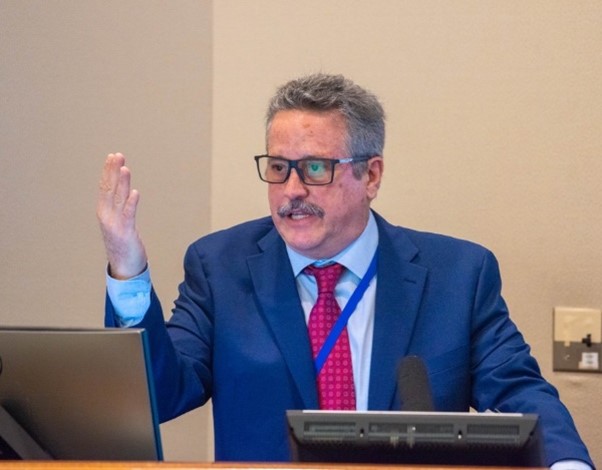 Rafael Guerrero-Preston, DrPH, MPH
Rafael Guerrero-Preston, DrPH, MPH
Chief Scientific Officer, LifeGene BiomarksDr. Guerrero-Preston is an innovator and disruptor in the discovery and validation of molecular markers for diagnostic, early detection, and clinical management in cancer. Since 2007 he has been studying the genomic and epigenomic underpinnings of cancer with Dr David Sidransky, focusing on head and neck squamous cell carcinoma (HNSCC). Dr Guerrero-Preston discovered and validated the genome-wide progression of differentially methylated regions from normal to HNSCC lesions in 2011; He was the first one to publish in 2014, the genome-wide integration of genomic and epigenomic lesions in HNSCC; and in 2016, was the first one to publish the HNSCC saliva microbiome associated to HPV positive and HPV negative patients and treatment response. His work has led to 50 publications and 17 patent applications (6 granted), with results on patients from four continents. During the past 18 years Dr Guerrero- Preston has worked to identify molecular biomarkers for diagnosis in biofluids of mostly pathogen related tumors, which exhibit ethnic, racial and/or socioeconomic disparities. His team has optimized a wide range of assays for early detection of cancer: from ELISAs to unbiased integrated genome-wide assays, that identify molecular biomarkers for prevention, diagnosis, and clinical management of HNSCC, gastric, liver, gall bladder, breast, and cervical cancer. Interestingly, his team has identified links between high-risk Human Papilloma Virus (HPV), the host epigenome, the immune system, the microbiome, and contextual factors, which may help explain the observed differences in the etiology, risk, and outcomes in some of these tumors. Dr Guerrero-Preston founded LifeGene Biomarks in 2009 to provide Better Quality of Life For Everyone, Everywhere with the use of DNA-based technologies for early cancer detection and health promotion strategies. He left his faculty position at Johns Hopkins School of Medicine in 2016 to grow LifeGene. LifeGene has been awarded close to $10M in undiluted funds through Fast-Track SBIR/STTR mechanisms and state matching grants since 2019 and is getting to launch the first Laboratory Developed Test in Q4 2023.
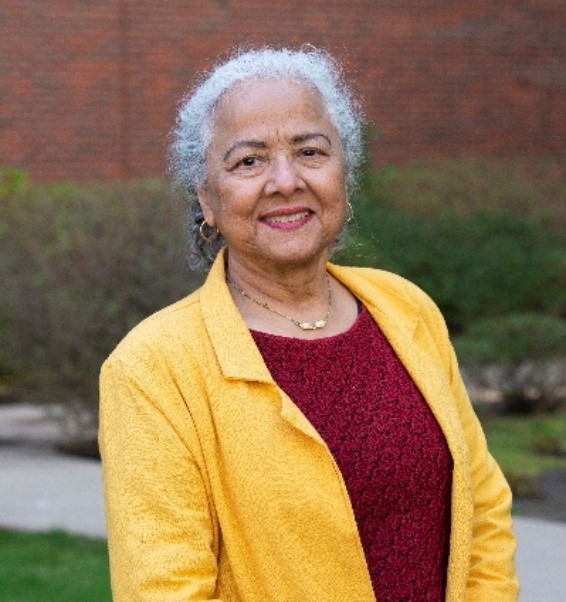 Tayyaba Hasan, Ph.D
Tayyaba Hasan, Ph.D
Professor, Harvard Medical SchoolTayyaba Hasan, PhD is Professor of Dermatology at Harvard Medical School and Professor of Health Sciences and Technology at Harvard-MIT. She is a leader in photochemical and photobiological approaches to treatment and diagnosis of cancer and infection using targeted strategies especially nanotechnology. She is an inventor of the photodynamic treatment of Age-Related Macular Degeneration, which is used in millions of patients. She has ~300 publications and over 30 inventions. She leads an NCI-funded multinational Program Project grant focused on image-guided treatment of pancreatic and skin cancers and an international consortium on developing low-cost technologies for image-guided photodynamic therapy of oral cancer in addition to investigator-initiated programs. Dr Hasan’s contributions to her field earned her the National Institutes of Health Pioneer Award in Biomedical Optics. She has received 5 Lifetime Achievement awards from leading scientific organizations, including the ICPP, American Society for Photobiology, International Photodynamic Association (IPA), and Society of American Asian Scientists in Cancer Research. Recent awards include the Gold Medal Award for Excellence in Photobiological Research from the European Society for Photobiology, and IPA Gold Medal, recognizing her significant career in photodynamic therapy. She also has numerous awards for her commitment to mentoring, teaching, and equitable representation in science.
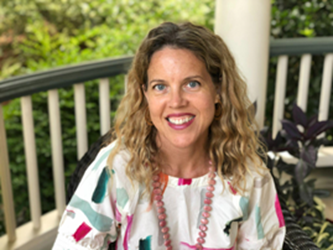 Megan Huchko, M.D., MPH
Megan Huchko, M.D., MPH
Associate Professor, Duke UniversityDr. Megan Huchko, MD, MPH is the Hollier Family Associate Professor of Global Health and Obstetrics & Gynecology and Global Health and Director of the Center for Global Reproductive Health at Duke. After completing her residency at Columbia Presbyterian, she moved to the University of California, San Francisco, where completed a fellowship in Reproductive Infectious Disease and joined the faculty as a clinician researcher. It was through UCSF that she began her longstanding partnership with colleagues at the Kenya Medical Research Institute. She moved to Duke in 2016, where she practices as an ob/gyn generalist and specializes in cervical cancer prevention through her clinical work as medical director of the Cervix Clinic and global women’s health research. Dr. Huchko’s research focuses on optimizing the diagnosis and treatment of cervical cancer among vulnerable populations. Currently, she is carrying out several large studies in central Uganda and western Kenya to evaluate the optimal implementation strategy for HPV-based cervical cancer screening in rural settings. She works in partnership with ministries and government officials in both places to develop and evaluate sustainable and context-specific prevention strategies. She is exploring the use of digital health technologies to address gaps in the quality and effectiveness of cervical cancer screening, and is looking at various factors that may influence screening acceptability, including HPV-related stigma.
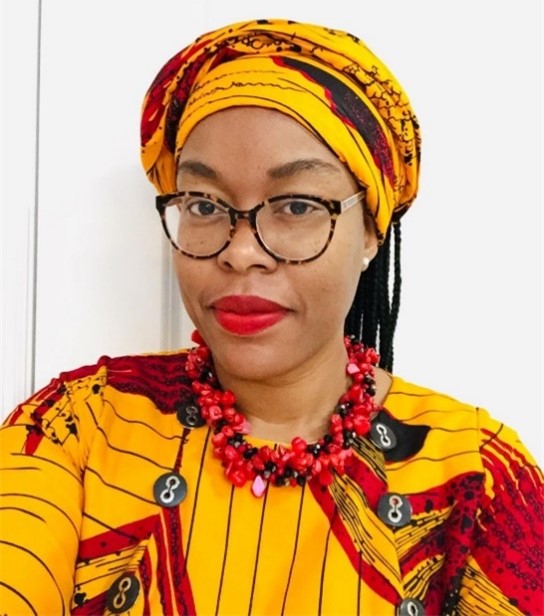 Juliet Iwelunmor, Ph.D
Juliet Iwelunmor, Ph.D
Professor, Washington UniversityDr. Juliet Iwelunmor (MPI) is a Professor of Medicine and Associate Director for Global Health and Dissemination at the Washington University in Saint Louis, School of Medicine. Her approach to research is rooted in fostering a sustainability PLAN (People, Learning, Adapting, Nurturing) which encourages researchers to begin with the end in mind, by deepening awareness of the minimum conditions necessary to sustain evidence-based interventions in resource-limited centers. Prior to joining SLU, Iwelunmor worked as an Assistant Professor at the University of Illinois, at Urbana Champaign. She also worked as a program specialist for UNESCO in Paris, France. She started her research career as an NIH F-31 predoctoral fellow at Penn State University, where she spent years under the guidance of her mentor, using the PEN-3 cultural model to study the positive, existential and negative factors that may impact efforts to advance health equity in resource constrained settings. She is a principal investigator to several NIH awards, including the Innovative Rapid Enabling Affordable, point-of-Care HPV Self-Testing Strategy (I-REACH) funded by the National Cancer Institute (U01 CA279863-01) which seeks to develop an affordable, sensitive and specific, user-friendly, rapid, and equipment-free, HPV self-test kit to increase HPV self-testing among screen-eligible Nigerian women.
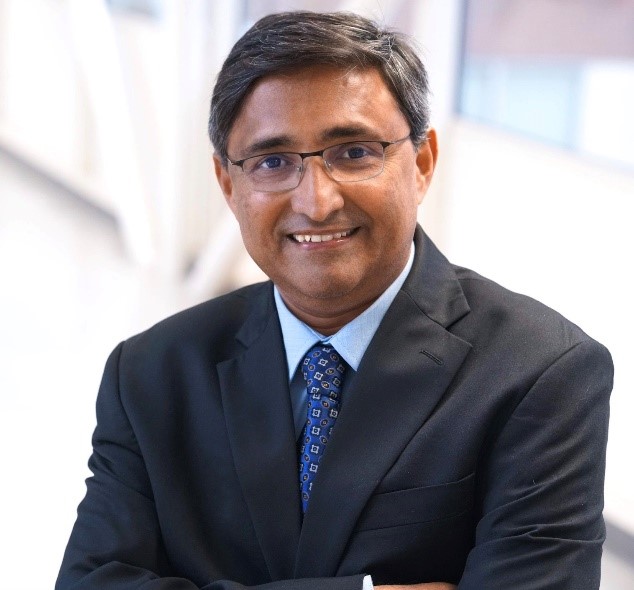 Moni A. Kuriakose, M.D., FRCS
Moni A. Kuriakose, M.D., FRCS
Medical Director, Karkinos HealthcareMoni Abraham Kuriakose, MD, FRCS is a head and neck cancer surgeon serving Karkinos Healthcare, a technology-enabled distributed cancer care network in India as its Medical Director. He holds joint appointment at Roswell Park Cancer Institute, Buffalo, New York as Professor and Vice Chairman of the Department of Head and Neck, Plastic and Reconstructive Surgery. He was the founding director of Cochin Cancer Research Centre, of the Government of Kerala, India. His research group focuses on developing novel technology for early detection of oral cancer and preventing oral cancer by targeting cancer stem cells and its niche. He has authored over 250 publications and 9 inventions. He led an NCI-funded multinational research program that developed an AI/ML based point-of-care imaging device to empower frontline headworkers for early detection of oral cancer, now being implemented for population wide oral cancer screening in low-resource settings. He is the recipient of several awards including Dr TMA Pai Gold Medal of the University of Manipal, Dr Noel Cohen best teacher award of the Department of Otolaryngology, New York University, and lifetime achievement award of the Indian Association of Oral and Maxillofacial Surgeons. He is the president of the International Association of Oral Oncology.
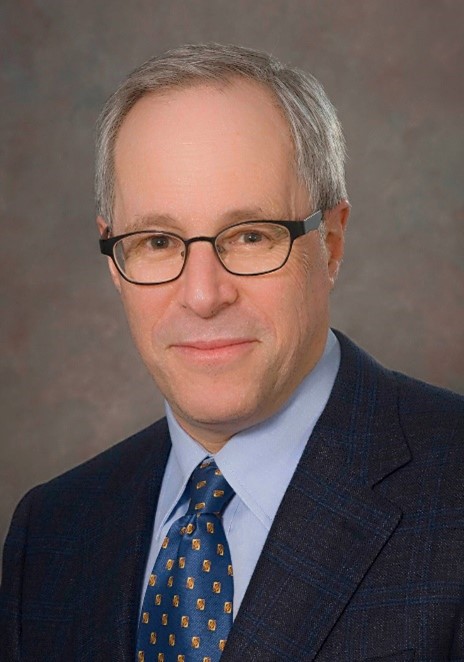 Richard Levenson, M.D.
Richard Levenson, M.D.
Professor, US Davis HealthRichard Levenson, MD, FCAP, is Professor and Vice Chair for Strategic Technologies, Department of Pathology and Laboratory Medicine, UC Davis Health. He received his MD at University of Michigan and pathology training at Washington University, followed by a cancer research fellowship at Univ. of Rochester and faculty positions at Duke and Carnegie Mellon. He then joined Cambridge Research & Instrumentation, Inc., becoming VP of Research before assuming his present position at UC Davis. He helped develop multispectral microscopy and small-animal imaging systems, birefringence microscopy, multiplexed ion-beam imaging (MIBI), and slide-free as well as enhanced-content microscopy approaches, and is an inventor on some 15 patents. He is section editor for Archives of Pathology and is on the editorial board of Lab. Invest. and AJP. Regrettably, he also taught pigeons histopathology and radiology. He is a recipient of the 2018 UC Davis Chancellor’s Innovator of the Year award and is a Fellow of SPIE.
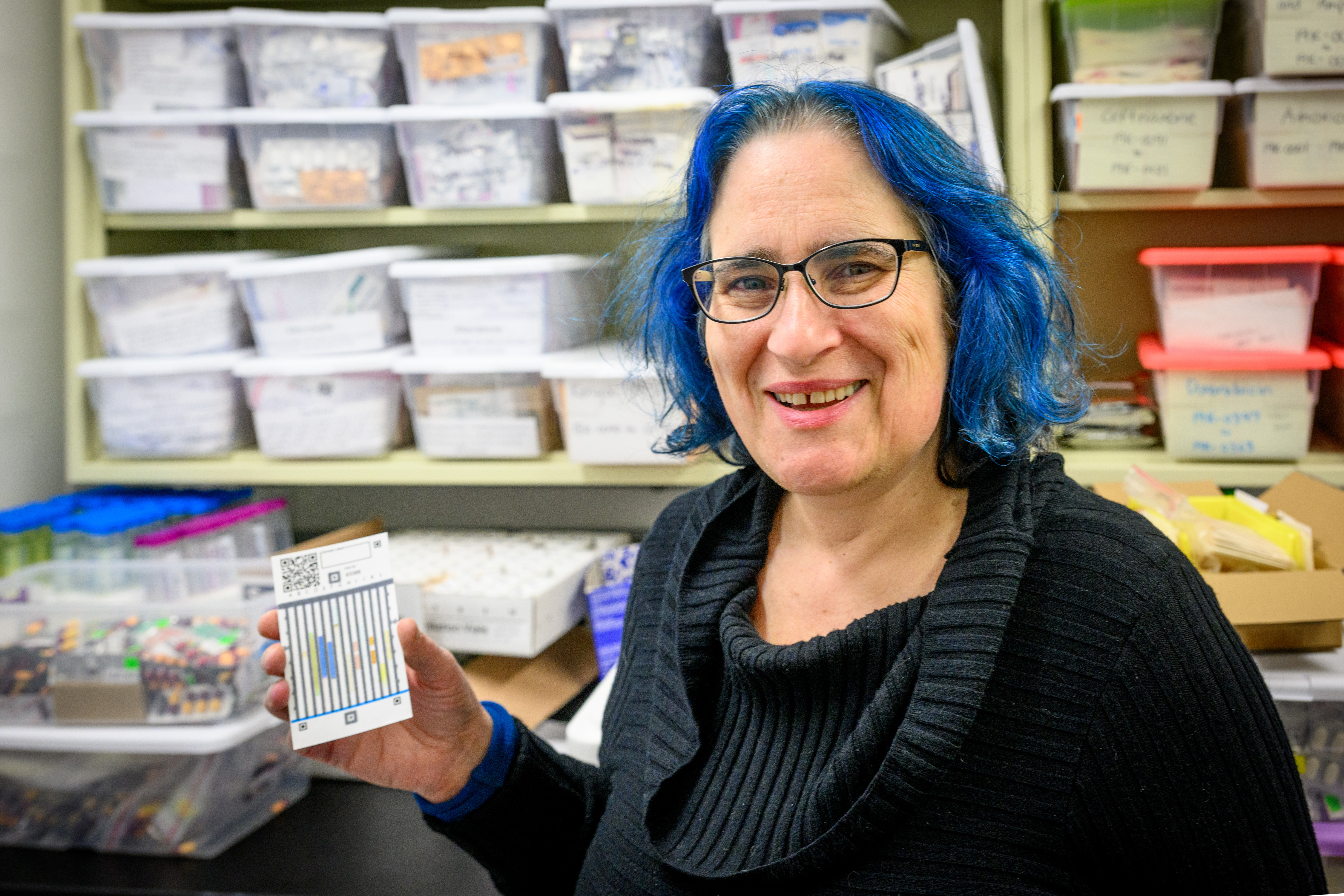 Marya Lieberman, Ph.D
Marya Lieberman, Ph.D
Professor, University of Notre DameDr. Lieberman develops paper-based assays for chemical analysis of pharmaceutical quality and emerging hazards in street drugs. Her group’s focus on user-centered design, collaboration with regulatory authorities and academic researchers in LMICs, and manufacturability has enabled PAD testing at large scale in multiple countries. Her group has analyzed thousands of pharmaceutical samples from Kenya, Tanzania, Malawi, Ethiopia, and Bangladesh, finding over 200 substandard or falsified products.
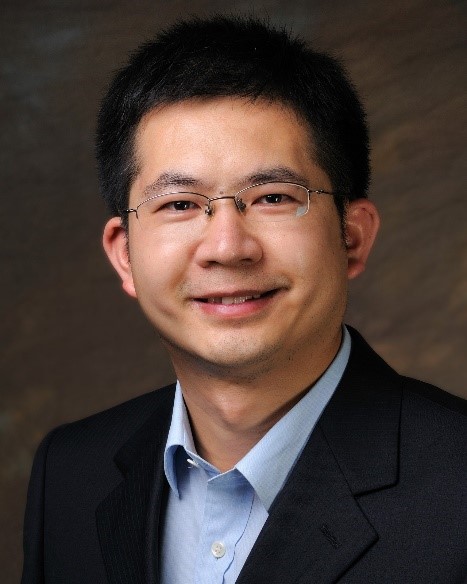 Changchun Liu, Ph.D
Changchun Liu, Ph.D
Associate Professor, University of Connecticuthangchun Liu is an associate professor in the Biomedical Engineering Department at the University of Connecticut. He received his Ph.D. in Physical Electronics at the Institute of Electronics, Chinese Academy of Sciences (IECAS), China. He has a highly interdisciplinary background and training spanning Engineering (i.e., electronic, mechanical), Chemistry and Biomedicine. Dr. Liu's research interests include the development of synthetic biology, CRISPR technology, microfluidics technology, biosensors, and their biomedical applications with a focus on point-of-care molecular diagnostics of infectious diseases and cancers.
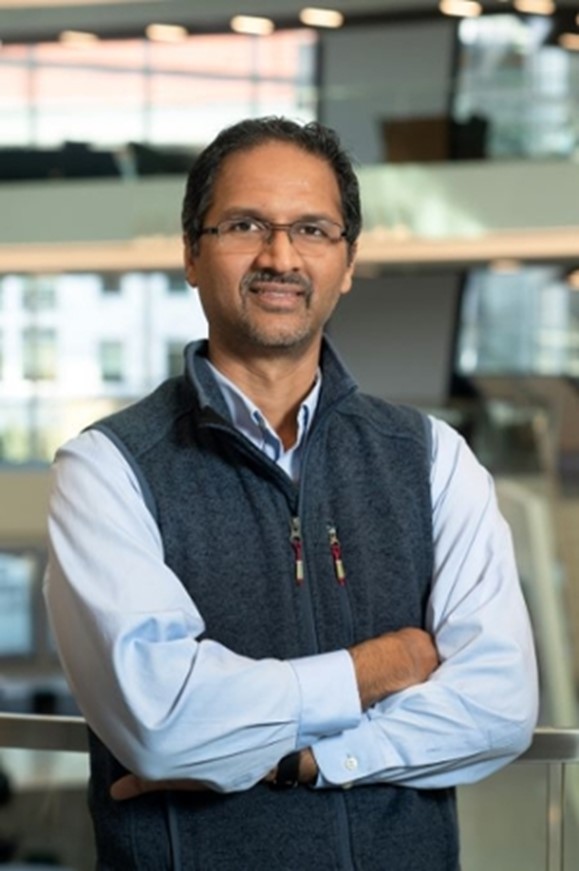 Anant Madabhushi, Ph.D.
Anant Madabhushi, Ph.D.
Professor, Emory UniversityDr. Anant Madabhushi is the Robert W Woodruff Professor of Biomedical Engineering; and on the faculty in the Departments of Pathology, Biomedical Informatics, and Radiology and Imaging Sciences at Emory University. He is also a Research Health Scientist at the Atlanta Veterans Administration Medical Center. Dr. Madabhushi has authored more than 475 peer-reviewed publications and more than 100 patents issued or pending. He is a Fellow of the American Institute of Medical and Biological Engineering (AIMBE), and the Institute for Electrical and Electronic Engineers (IEEE) and the National Academy of Inventors (NAI). His work on "Smart Imaging Computers for Identifying lung cancer patients who need chemotherapy" was called out by Prevention Magazine as one of the top 10 medical breakthroughs of 2018. In 2019, Nature Magazine hailed him as one of 5 scientists developing "offbeat and innovative approaches for cancer research". Dr. Madabhushi was named to The Pathologist’s Power List in 2019, 2020, 2021 and 2022.
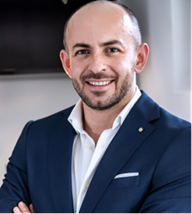 Albert Manasyan, M.D.
Albert Manasyan, M.D.
Associate Professor, University of Alabama at BirminghamDr. Manasyan has 10+ years of experience in Reproductive, Maternal, Newborn, and Child Health (RMNCH) leading complex global health programs in Sub-Saharan Africa, managing cross-functional and multi-national teams, and providing strategic direction in government and nonprofit environments. He has been a leader in the establishment of a research infrastructure within the NICHD-funded Global Network for Women's and Children's Health Research site in Zambia. His research focuses on novel models – community or health facility – aimed at reducing maternal and neonatal mortality, with an emphasis on perinatal mortality among preterm infants.
He is an Associate Professor with the University of Alabama at Birmingham (UAB), based in Zambia, working at the Centre for Infectious Disease Research in Zambia (CIDRZ), where he set up and heads the RMNCH Department. He serves as PI on multiple studies in Zambia. During his tenure, he has successfully implemented numerous programs and research studies and contributed to the development of several Zambian national guidelines. The grants portfolio includes research studies in the field of safe motherhood, STI screening among pregnant women, cervical cancer, including use of AI for early detection of precancerous lesions, neonatal mortality and morbidity, postnatal depression, and adolescent health.
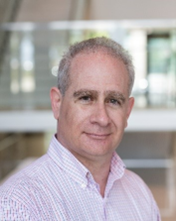 Jeffrey Martin, M.D., MPH
Jeffrey Martin, M.D., MPH
Professor, University of California, San FranciscoDr. Martin is Professor and Chief of the Division of Clinical Epidemiology in the Department of Epidemiology and Biostatistics at the University of California, San Francisco (UCSF). Dr. Martin’s clinical training is in internal medicine and infectious diseases. He is formally trained in clinical and epidemiologic research methods at UC Berkeley, where he earned a Master of Public Health degree with specialization in epidemiology. Dr. Martin served for 15 years as the director of UCSF's NIH-funded Training in Clinical Research (TICR) program, in which he served as director of the UCSF Advanced Training in Clinical Research certificate program and the UCSF Master's Degree Program in clinical and epidemiologic research. His research is best characterized as using epidemiologic methods to derive biologic and clinical inferences. His substantive area of interest is infectious diseases and cancer, with a special focus on HIV infection and its complications, notably Kaposi's sarcoma (KS) and Kaposi's sarcoma–associated herpesvirus (KSHV) infection and cervical cancer and human papillomavirus (HPV). Dr. Martin leads or participates in a variety of NIH-sponsored projects both in the U.S. and Africa. In the U.S., he is a) Co-Director of the UCSF SCOPE cohort, a vehicle that has supported HIV-related and specimen-based translational research since 2001 (supported by P30 AI027763); b) Director of the Specimen Core for the CNICS Cohort (R24 AI067039), a multi-city clinic-based cohort of HIV-infected adults; and c) co-PI of the UCSF contribution to the Adult Cohort of the NIH Researching Covid to Enhance Recovery Initiative (RECOVER; OT2 HL161847). In Africa, he is co-PI for U54 CA254571, a hybrid of research and training relating to the early detection and linkage to care of HIV-associated malignancies; b) Co-PI for U01 CA269199, the subject of this conference, which is evaluating a point-of-care diagnostic test for Kaposi sarcoma; and c) PI for U2R TW011281, a training grant in clinical and epidemiologic research in Liberia.
 Toby Mauer, M.D.
Toby Mauer, M.D.
Professor, University of California, San Francisco Lakeshore Family Medicine CenterDr. Toby Maurer is a dermatologist at the UCSF Lakeshore Family Medicine Center. She is an expert in HIV dermatology and infectious diseases and an international lecturer and researcher in this field. Maurer earned a medical degree at the University of Calgary in 1987. She completed residencies in family practice and dermatology and two fellowships in HIV medicine at UCSF. In her research, she is studying Kaposis sarcoma and teledermatology, which uses computer and video technology to diagnosis dermatologic conditions. She also has set up HIV dermatologic services and research in Uganda and Kenya. She is an associate professor at UCSF in Dermatology and chief of Dermatology at San Francisco General Hospital.
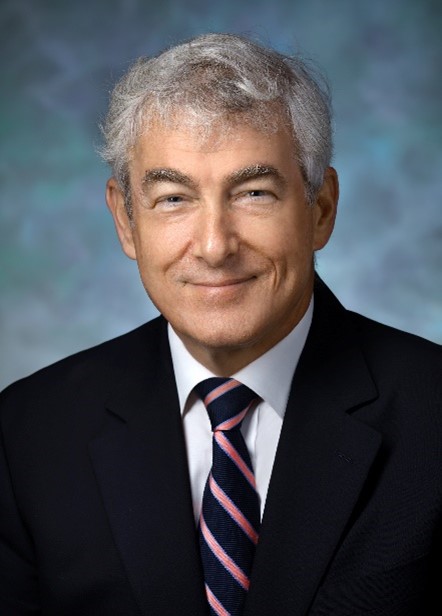 Stephen Meltzer, M.D.
Stephen Meltzer, M.D.
Professor, Johns Hopkins University School of MedicineStephen J. Meltzer is the Thomas R. Hendrix/Harry and Betty Myerberg Professor of Gastroenterology and American Cancer Society Clinical Research Professor at the Johns Hopkins University School of Medicine and Sidney Kimmel Comprehensive Cancer Center, where he has been appointed since 2006. His research focuses on biomarker development and biological models in human esophageal cancer. He was among the first scientists to describe aberrant methylation as an early event and predictor of future malignancy in esophageal premalignant and malignant disease. He has also created three-dimensional primary human organoid models in which to study early esophageal cancer biology, using CRISPR-Cas9 and other related technologies. He is the inventor of numerous awarded patents and author of more than 300 research articles who has trained over 100 highly successful mentees during his career. He has won numerous awards and membership in numerous prestigious societies including the American Society for Clinical Investigation, the Association of American Physicians, the American Cancer Society, and the American Gastroenterological Association.
 Nathan Monty, B.S.
Nathan Monty, B.S.
Chief Executive Officer, Spatial Surgical LLCSerial entrepreneur having started four companies, all based on advancing laser technology in commercial and healthcare applications. Last company started was Convergent Dental, www.convergentdental.com, using a dental laser to eliminate anesthesia and pain while drilling cavities. Convergent is presently in Waltham MA with over 100 employees. Accomplished technology executive with 25+ years of medical device, aerospace and industrial experience. Successful in developing and marketing innovative products, establishing and managing profitable ventures, influencing and partnering with key stakeholders, boosting profit margins, driving long-term revenue growth, building and directing high-performing Engineering & Manufacturing teams, improving processes. Strategic technical thinker that interacts with customers to identify product or process shortcomings and innovates cost effective “laser based” solutions. Strong history of innovating customer centric solutions supported by IP and long-term manufacturing profitability. 30+ patents issued. Insightful, technical and hands-on leader able to inspire trust, build high-quality long-lasting products, simplify complex topics, collaborate with cross-functional leaders, and bridge the gap between business and technology. Strong business acumen. Excellent technology, team building, executive presentation and leadership skills. Organized/directed technical organizations from start-up to 225 employees.
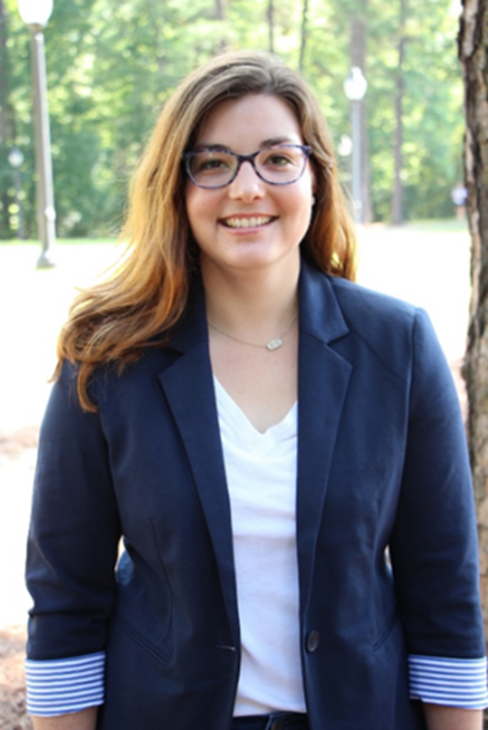 Jenna Mueller, Ph.D.
Jenna Mueller, Ph.D.
Assistant Professor, University of Maryland, College ParkJenna Mueller, PhD is an Assistant Professor in the Fischell Department of Bioengineering at the University of Maryland College Park, and member of the University of Maryland Greenebaum Comprehensive Cancer Center. Her interdisciplinary training combines optical imaging, image processing, ablative therapies, and human-centered design to develop biomedical devices to solve challenges in global cancer. She received her bachelor’s degree in bioengineering with a minor in global health technologies from Rice University and received both an MS and PhD in biomedical engineering at Duke University for her work developing optical systems and algorithms to improve the accuracy of cancer excision during surgery. Prior to joining the University of Maryland, Dr. Mueller was a Postdoctoral Associate at Duke University where she worked with a multidisciplinary team to develop the Pocket colposcope and conducted studies to demonstrate its impact in 1,000 women in 8 countries. She is spearheading a new program to develop low-cost therapeutics for cervical dysplasia and received a K99/R00 award from the NCI to do large animal trials before moving to patient studies.
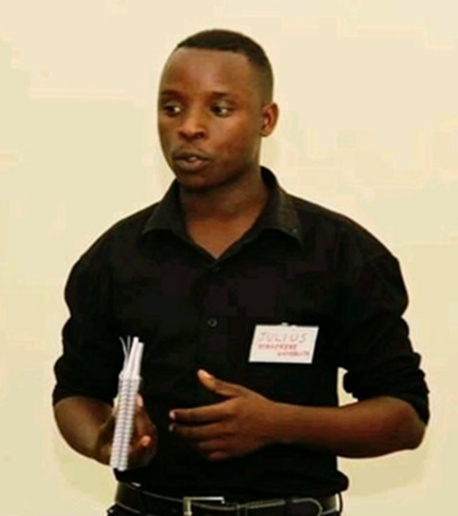 Julius Mugaga, MSc, B.S.
Julius Mugaga, MSc, B.S.
Head of Design Cube, Makerere UniversityJulius Mugaga is the Head of the Design Cube – a Biodesign Innovation space constructed from repurposed shipping containers and hosted at the College of Health Sciences, Makerere University. In the space, he is coordinating the construction of the KeyScope and other projects in partnership with Duke University. Julius has great enthusiasm for Biodesign Teaching, medical device design and research, and local product manufacturing. He is also driven with a great passion for applying Human-centered design, Design Thinking and the application of these principles in innovating Fit- for-Purpose solutions mainly to local healthcare challenges. He currently holds two Utility model IPs and one copyright registered in Uganda. He holds a B.S. in biomedical engineering and Msc in bioinformatics from Makerere University in Uganda.
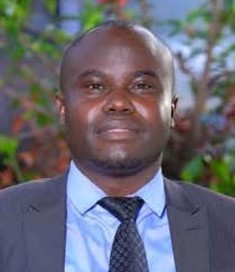 Joseph Ngonzi, M.D., Ph.D
Joseph Ngonzi, M.D., Ph.D
Deputy Dean of Medical Science, Mbarara University of Science and TechnologyProfessor Ngonzi received his MBBS from MUST followed by residency training in OB/Gyn also at MUST. Subsequently, he received a PhD in Biomedical Sciences from the University of Antwerp in Belgium. Passionate about advancing effective screening efforts, he heads cervical cancer screening and prevention at the Mbarara Regional Referral Hospital in addition to his broader university leadership roles. Prof. Ngonzi has longstanding academic relationships with the Massachusetts General Hospital / Harvard Medical School that would be brought to bear for this U01.
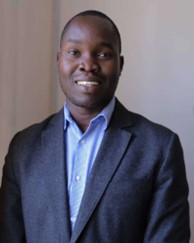 Samson Okello, MMED
Samson Okello, MMED
Physician-Epidemiologist, Mbarara UniversityDr. Samson Okello is a physician-epidemiologist and esteemed faculty at Mbarara University and Technology School of Medicine. He is a graduate of the Harvard School of Public Health and has an expertise in gastroenterology and NCDs in people living with HIV. Dr. Okello completed his medical residency at Mbarara University, where together with partners at Massachusetts General Hospital, he has worked to establish an active Gastroenterology Endoscopy Unit and research program in non-communicable diseases in the highlands of western Uganda. Dr. Okello receives NIH funding as a PI and Co-I for research projects focusing on genomic and clinical epidemiology of esophageal cancer and cardiovascular disease in people with and without HIV, particularly in rural, underserved communities. Dr. Okello is active in medical student education, professional development for residents, and mentorship for students and resident trainees pursuing global health experiences and projects. Dr. Okello co-founded a non-governmental organization in Uganda that supports patient care and career development activities for health care providers in the region.
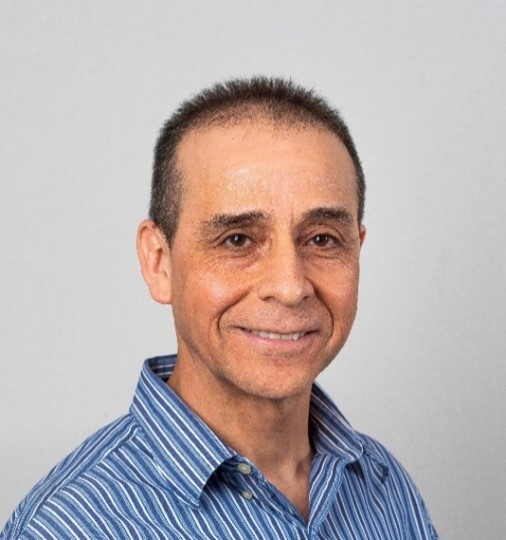 Miguel R. Ossandon, Ph.D
Miguel R. Ossandon, Ph.D
Progam Director, National Cancer InstituteMiguel R. Ossandon has a dual background in clinical laboratory and computer science. He started working in cancer research at the Lombardi Cancer Center at Georgetown University where he also began his undergraduate training in computer science. He is working for the National Cancer Institute since 2007. As a Program Director in the Diagnostic Biomarkers and Technology Branch, he manages a diverse grant portfolio that includes projects on technology development for global health.
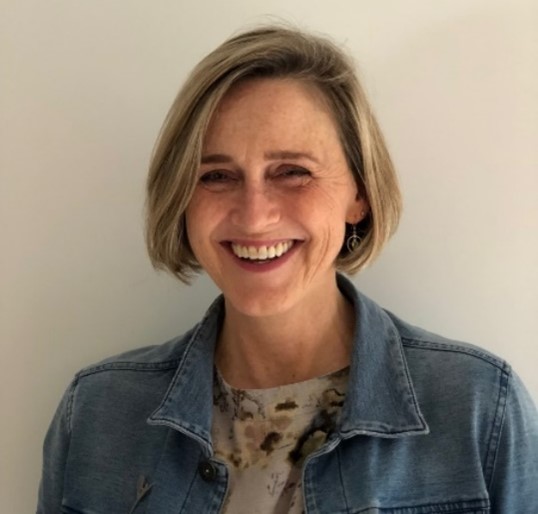 Jeanette Parkes, MBBCh
Jeanette Parkes, MBBCh
Head of Division Radiation Oncology, Groote Schuur HospitalJeannette Parkes is divisional Head of Radiation Oncology and Head of Radiation Medicine at Groote Schuur Hospital and the University of Cape Town in South Africa. Her clinical portfolio includes management of CNS tumours, bone and soft tissue tumours and paediatric radiotherapy. Her research interests include global radiotherapy, paediatric radiotherapy, and use of artificial intelligence for radiotherapy. She is president of the College of Radiation Oncology of South Africa and clinical director of the Access to Care (Cape Town) programme. This education programme includes 2D-3D radiotherapy, Introduction to advanced techniques, paediatric radiotherapy) She is co-convenor of the annual Paediatric Brain Tumour Workshop at the University of Cape Town. Internationally, she is LMIC representative on the executive committee of the Paediatric Radiation Oncology Society (PROS), and has been a team leader of SIOP Global Health network’s PROS LMIC working group since 2016. She is the radiotherapy representative on SIOP Africa’s executive committee, as well as SNOSSA (Society of neuro-oncology in Sub-Saharan Africa) executive committee. She has contributed to WHO working groups for the technical package associated with the Global Initiative for Childhood Cancer (GICC) and to international adapted treatment guidelines for treatment of Paediatric cancer. She is editor of the IAEA guideline for paediatric radiation oncology, and is chairperson of the ARIA AMG (adapted management guideline) steering committee.
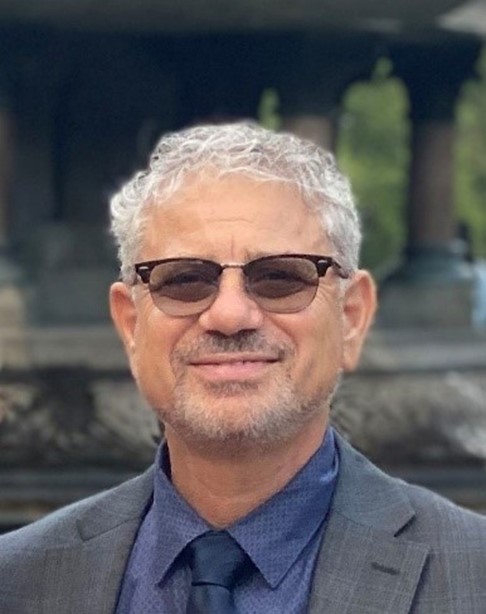 Christian Patriotis, Ph.D, M.Sc
Christian Patriotis, Ph.D, M.Sc
Program Director, National Cancer InstituteDr. Christos obtained his M.Sc. in Biochemistry from the University of Sofia, Bulgaria, and his Ph.D. in Molecular Biology from the Bulgarian Academy of Sciences. His postdoctoral training focused on signal transduction in T cell activation and differentiation and in epithelial tumor biology. He joined the faculty at Fox Chase Cancer Center in 1994 where his research was directed toward understanding the mechanisms of breast and ovarian cancer pathogenesis and the identification of biomarkers associated with the early stages of the two types of cancer. This work included the development and characterization of animal models of breast and ovarian cancers, as well as transcriptomic and mutational analyses of human and animal model specimens for the discovery of biomarkers for the early detection of breast and ovarian cancers. He joined CBRB in March 2007, where he actively led the management and coordination of key activities of the group, including the EDRN Breast/Gyn Cancers Collaborative Group for the development of biomarkers for early detection of breast, ovarian and other gynecological cancers; the MCL and TBEL Consortia focused on understanding the biological underpinnings of early lesions and overdiagnosis; and overseeing the NCI-NASA/JPL interagency agreement for the development of the EDRN and MCL knowledge environment systems and for providing informatics support to other CBRB-sponsored programs.
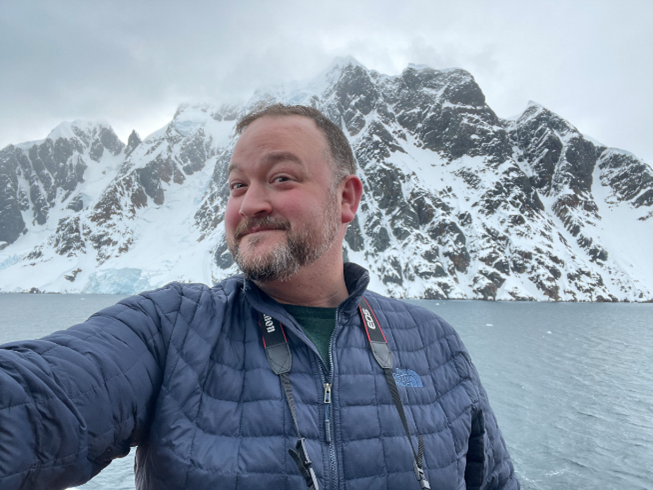
Paul Pearlman is a Program Director and Lead for Global Health Technology at the U.S. National Cancer Institute’s Center for Global Health and oversees the trans-NCI Affordable Cancer Technologies (ACTs) program. He received his BSEE from Georgia Tech and MS, MPhil, and PhD from Yale. He has conducted research at Georgia Tech’s Department of Biomedical Engineering, the Georgia Tech Research Institute’s Electronic Systems Laboratory, Yale Medical School, University Medical Center Utrecht, and in the NCI’s Division of Cancer Epidemiology and Genetics. His research foci include biomedical image analysis, with an emphasis on pathology-driven computer aided diagnosis/treatment planning applied to low-cost imaging modalities. Dr. Pearlman transitioned to science administration as a AAAS Science and Technology Policy Fellow. He oversees initiatives supporting translational technology research to address cancers in low-resource settings globally and leads funding partnerships with other nations’ research funders. Dr. Pearlman is a Senior Member of the IEEE and serves on the IEEE Technical Committee on Translational Engineering for Healthcare Innovations.
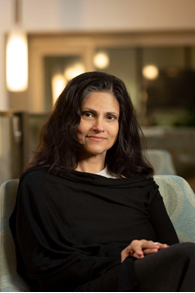 Nirmala Ramanujam, Ph.D.
Nirmala Ramanujam, Ph.D.
Robert J. Carr Professor of Engineering, Duke UniversityDr. Nimmi Ramanujam is the Robert W. Carr Professor of Engineering and Professor of Cancer Pharmacology and Global Health at Duke University and co-program leader of the Radiation Oncology and Imaging Program (ROIP) at the Duke Cancer Institute. Dr. Ramanujam’s research focuses on breast and cervical cancer. Her goals are to design innovations that enable complex referral services often reserved for hospitals to be accessible at the community/primary care level, develop technologies to see and treat women with early-stage disease in one visit, and develop tools to make cancer treatment more effective and efficient. She founded the Center for Global Women’s Health Technologies (GWHT) in 2013 where she empowers trainees to create impactful solutions to improve the lives of women and girls globally. Since its inception, this center has catalyzed new research activities and the development and commercialization of several technologies that advance the prevention and treatment of cervical and breast cancer. She has created two companies Zenalux and Calla Health to commercialize her technologies.
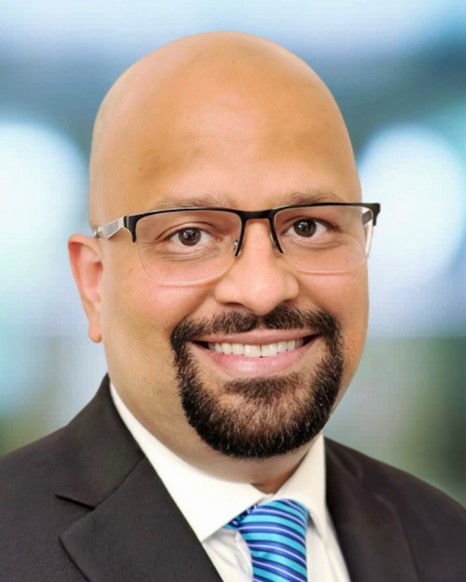 Vikrant Sahasrabuddhe, MBBS, DrPH
Vikrant Sahasrabuddhe, MBBS, DrPH
Program Director, National Cancer InstituteDr. Vikrant Sahasrabuddhe is Deputy Chief of the Breast and Gynecologic Cancer Research Group and Program Director in the Division of Cancer Prevention at the National Cancer Institute. He provides scientific direction and strategic guidance for efforts on optimization of clinic-based and population-based precision prevention strategies for cervical cancer and other human papillomavirus (HPV)-related cancers and building the evidence base for their implementation in the United States and globally. Dr. Sahasrabuddhe directs three major programs: the NCI Cervical Cancer ‘Last Mile’ Initiative, focused on expanding cervical cancer screening access to under-screened populations via self-collected sampling-based HPV testing approaches, the US-Latin American-Caribbean HIV/HPV-Cancer Prevention Clinical Trials Network (ULACNet), focused on collaborations to evaluate approaches for prevention of HPV-related cancers in people living with HIV, and the HIV/Cervical Cancer Prevention ‘CASCADE’ Clinical Trials Network, focused on pragmatic clinical trials on optimizing the cervical cancer screening, management, and precancer treatment cascade for women with HIV. Dr. Sahasrabuddhe received his medical degree from University of Pune in India, his masters and doctorate degrees in public health from the University of Alabama at Birmingham, and completed fellowship training in epidemiology at Johns Hopkins University and in the NCI intramural program.
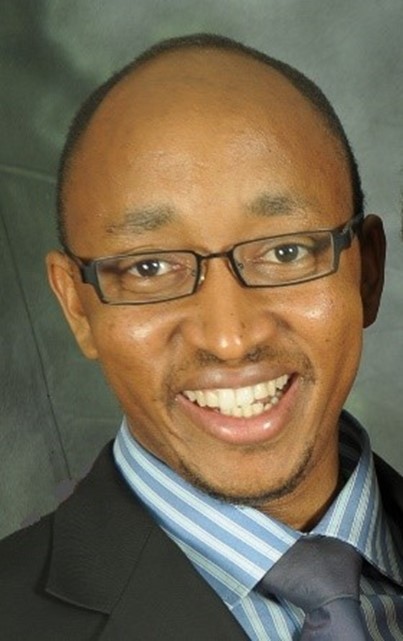 Aggrey Semeere, MBChB, M.Med, MAS
Aggrey Semeere, MBChB, M.Med, MAS
Physician, Makerere University College of Health SciencesDr Semeere is a Physician and Research Scientist at the Infectious Diseases Institute (IDI), Makerere University College of Health Sciences (MUCHS) in Kampala, Uganda. His research interests revolve around understanding the epidemiology of chronic co-morbidities (especially cancer and cardiovascular disease) among HIV-infected individuals in the antiretroviral therapy (ART) era, with bias towards designing interventions for prevention and early detection using implementation science. Through his participation in the NIH-sponsored International Epidemiologic Databases to Evaluate AIDS (IeDEA) consortium in East Africa, he has led the consortium’s operations in training and monitoring of the use of skin biopsy for the histologic diagnosis of Kaposi’s sarcoma (KS) at the IDI since 2013 at HIV clinics in Uganda and western Kenya. Dr. Semeere is also Project Leader for a study evaluating why HIV-infected patients continue to develop KS despite ART use in East Africa as part of the NCI-funded UCSF-IDI consortium for early detection and prevention of cancer. Dr Semeere also splits his time to teach both epidemiology and implementation science at both UCSF and Makerere Universities.
 Brian Sorg, Ph.D
Brian Sorg, Ph.D
Branch Chief, National Cancer InstituteBrian Sorg obtained his B.S. degree in electrical engineering from the University of Maryland, M.S. degree in biomedical engineering from Johns Hopkins University, and Ph.D. in biomedical engineering from the University of Texas at Austin. He did post-doctoral training in tumor biology at Duke University Medical Center in the Department of Radiation Oncology. As an Assistant Professor in the Department of Biomedical Engineering at the University of Florida, his research focused on in vivo spectral imaging microscopy of tumor microvasculature to measure oxygen delivery effects of anti-vascular targeting therapies. Brian’s current research interests and NCI grant portfolio are focused on technology development for biosensors and various cellular and molecular separation and analysis techniques for biomarker discovery and clinical application. His portfolio and research interests also include liquid biopsies, microfluidics, tissue chips, in vitro optical imaging, and other biophotonics technologies for applications in cancer diagnosis and treatment. While at NCI, Brian obtained an MBA from the Kenan-Flagler Business School of the University of North Carolina at Chapel Hill.
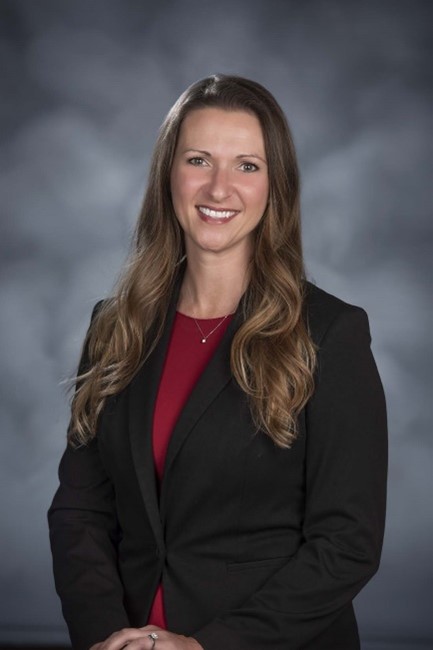 Erin Spiegel, Ph.D
Erin Spiegel, Ph.D
VP, Clinical & Regulatory Affairs , PharmaJet, Inc.As a molecular geneticist, my research spanned gene mapping in swine for the USDA, to molecular mechanisms of autism, to the design and development of adenovirus-based vaccines. My scientific expertise includes complex genetic engineering, design and development of animal models of human disease, vaccine platform design, protein purification, virology, and assay development. I have also established GMP production for different vaccine platforms, and managed the Quality Systems surrounding drug manufacturing. In the latter part of my career, I have been more involved in the Regulatory and Clinical planning and execution for different drugs, biologics and medical devices. I have designed and managed ISO 13485 quality management systems, managed technical files, biocompatibility testing, and clinical evidence evaluations. As a Regulatory specialist in this space, my overall contributions have been in regulatory strategic planning, outreach, communication, and submission design and completion. With PharmaJet, I have been able to combine my research and scientific knowledge with my regulatory and clinical experience into a unique position to make significant contributions on these fronts with needle-free injection technology and its promise for widespread vaccinations and enabling the commercialization of nucleic acid-based vaccines and therapeutics.
 Robert T. Ssekitoleko, MEng
Robert T. Ssekitoleko, MEng
Professor, Makerere UniversityRobert T Ssekitoleko is a Lecturer, researcher and the Head of the Biomedical Engineering Program at Makerere University. He completed his MEng Degree in Medical Engineering at Queen Mary, University of London in 2007. He then held a Teaching Assistant position at the same university for one year. He undertook his doctoral training at Strathclyde University, Glasgow, UK, with his research focusing on micro-scale design and fabrication of ultrasound transducers for diagnosing early-stage breast or prostate cancer. His main interest is in removing barriers to Global Health technologies, with knowledge, experience and skills in medical device design, prototyping, devices trials as well as capacity building. He is keen on developing effective, affordable, and easy-to-use innovative biomedical devices that can advance diagnostics, interventions and disease monitoring in low- and middle-income countries. He is very committed to building capacity in Biomedical Engineering in Uganda and Sub-Saharan Africa. His work involves training and mentoring students from BSc to PhD level. He is interested in combining his research interests with teaching and having undergraduate students contribute to the research objectives to improve learning outcomes. He is currently a PI on a number of projects aimed at improving access to medical devices and technologies.
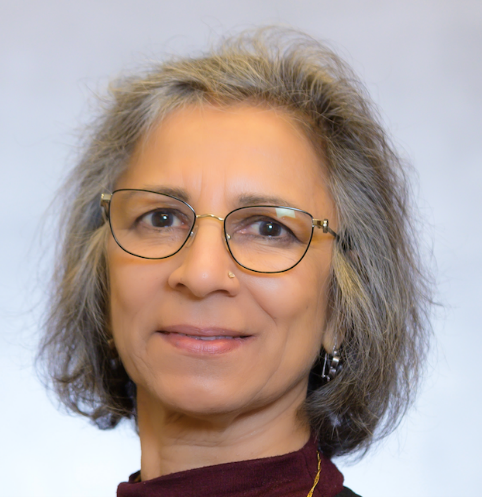 Pushpa Tandon, Ph.D
Pushpa Tandon, Ph.D
Program Director, National Cancer InstituteDr. Tandon manages applications in molecular imaging, image guided intervention, nanotechnology, and global health. She also serves as the Deputy Director for the Quantitative Imaging Network managing outreach and associate membership of QIN. Dr Tandon was awarded the State Department Embassy Fellowship to work in India to develop a joint program in alternative medicine. Before joining NCI, Dr. Tandon served as the Scientific Review Officer at the Center for Scientific Review, NIH. Dr Tandon has a Ph.D. in Chemistry from Lucknow University, India, and came to the USA as a Fogarty Fellow to study alterations in G-protein linked second messengers in the developing brain in response to neurotoxicants at NIEHS. Her work was instrumental in the establishment of federal guidelines for regulation of pesticide exposure in humans. Dr. Tandon then moved to Harvard Medical School to study genetic and neurological aspects of epilepsy and other neurodegenerative disorders. She was developing therapeutics for neurological disorders at “WellStat Therapeutics” before joining NIH. She has numerous publications in peer reviewed journals and has been nominated as the Chair of a long-standing roundtable at the National Academies of Sciences.
 Jeff Wang, Ph.D.
Jeff Wang, Ph.D.
Louis M. Sardella Professor , Johns Hopkins UniversityJeff T.H. Wang is Louis M. Sardella Professor in Whiting School of Engineering at JHU, where he has served on the faculty since 2002. He earned his doctorate in mechanical engineering from UCLA in 2002. His research focuses on the development of new technologies for molecular analysis and biomedical research via advances in micro- and nano-scale sciences. He has contributed to developments in single-molecule fluorescence spectroscopy, microfluidics, and nano-biosensors for genetic and epigenetic biomarker-based diagnostics of cancer, infectious disease, and an array of other diseases. Dr. Wang is an inventor of 25 patents and has authored 180 research articles and delivered 130 invited talks. He received the NSF CAREER Award in 2006, CSR Jorge Heller Award in 2007, ASGR Excellence in Research Award in 2007, the JALA Ten Award in 2011. He is a Fellow of the American Institute for Medical and Biological Engineering (AIMBE), American Society of Mechanical Engineering (ASME), Institute of Electrical and Electronics Engineers (IEEE), Royal Society of Chemistry (ROC), and American Association for the Advancement of Science (AAAS).
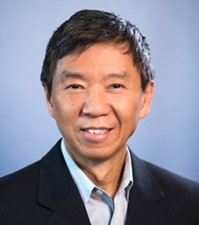 Yisong Wang, Ph.D
Yisong Wang, Ph.D
Program Director, National Cancer InstituteYisong Wang is a program director in Molecular Imaging Branch, Cancer Imaging Program in the Division of Cancer Treatment and Diagnosis. He manages grant portfolios focusing on molecular imaging from basic discovery of methods and agents to their development as preclinical tools and into clinical use in the service of diagnosis and therapy of cancer patients and those at risk.
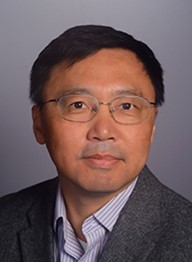 Ming Zhao, Ph.D
Ming Zhao, Ph.D
Program Director, National Cancer InstituteDr. Ming Zhao is a Program Director at the National Cancer Institute's Small Business Innovation Research (SBIR) Development Center. In this role, Dr. Zhao develops and manages SBIR/STTR programs and contracts focused on cancer therapeutics, molecular diagnostics, medical imaging, radiotherapy, AI-aided technology development and global health. Prior to joining the SBIR Development Center, Dr. Zhao is a Program Director in the Center to Reduce Cancer Health Disparities (CRCHD) at the NCI. In this role, Dr. Zhao developed and managed programs that address the social, behavioral, and biological factors related to cancer disparities. Dr. Zhao also had experience working in both biotech and pharmaceutical companies. He worked as a senior scientist at the GE Global Research Center and as a scientist at Pfizer. Dr. Zhao received his Ph.D. in molecular biology and biochemistry from the Department of Biological Sciences, Wayne State University. He carried out postdoctoral research at both the University of Michigan Medical School and Wayne State University.
